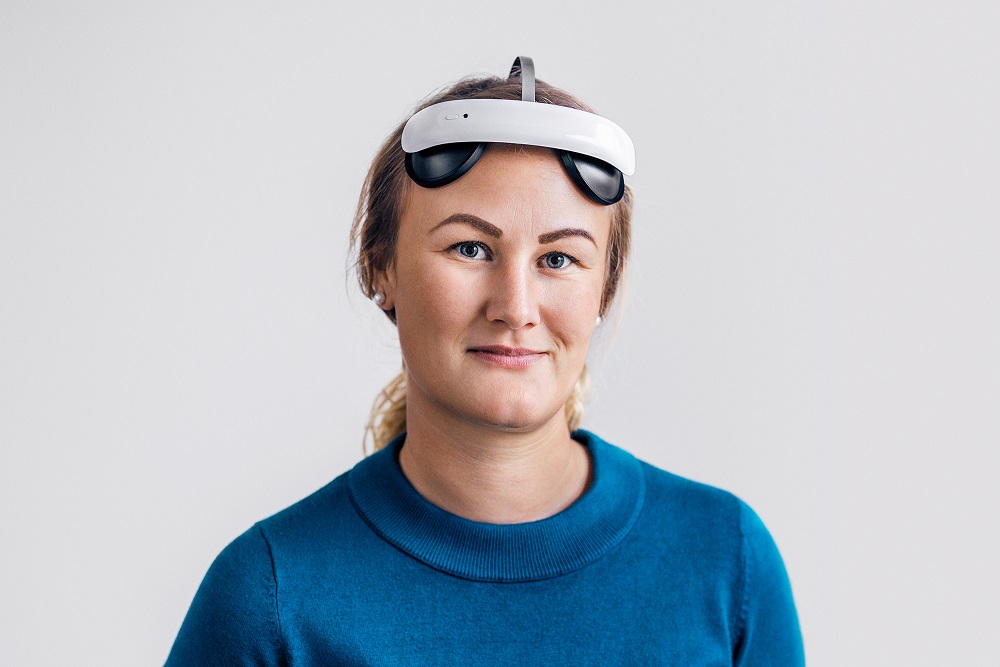First Clinical Study Evaluating Combined tDCS And Behavior Therapy Could Point To A New Treatment For Depression
First Clinical Study Evaluating Combined tDCS And Behaviour Therapy Could Point To A New Treatment For Depression
London, UK. The first ever clinical study evaluating combined transcranial direct current stimulation (tDCS) and behaviour therapy could point to a new treatment for depression. The clinical pilot study is being undertaken by Flow Neuroscience, Europe’s first, and only, medically approved, at-home treatment for depression, which comprises a tDCS headset device and behaviour therapy app. The results will help the process of getting the Flow device reimbursed by healthcare providers, including the UK’s NHS. 
The independent study will evaluate how patients with depression respond to Flow’s tDCS headset combined with its behaviour therapy app, and be led by leading brain stimulation researcher, Dr Andre Brunoni, associate professor of Psychiatry at the University Hospital of Sao Paulo, Brazil.
To date, tDCS has been shown to reliably improve symptoms of depression. Randomised controlled trials published in the New England Journal of Medicine and the British Journal of Psychiatry showed that tDCS, of the type used by Flow, had a similar impact to antidepressants, with fewer, less-severe side effects.1,2,3
People with depression often have a lower neural activity in their dorsolateral prefrontal cortex, the brain region that controls cognitive skills and emotional expression. The Flow headset, which retails at £399 and can be purchased here, uses tDCS to activate neurons in this area and rebalance activity.
Dr Andre Brunoni, who co-authored the New England Journal of Medicine and British Journal of Psychiatry study, says: “Flow has created a powerful medical device treatment for depression without the adverse effects associated with pharmacological therapies. This new clinical study will, for the first time, evaluate how patients with depression respond to Flow’s tDCS headset combined with its behaviour therapy app.”
In Europe, Flow is classified as a Class IIa medical device intended for use as a treatment for depression and was certified by BSI’s Netherlands notified body.
“We’re empowering people to self-manage their depression with safe, effective and medication-free digital alternatives,” says Daniel Mansson, CEO and co-founder at Flow. “This is the first clinical study to examine the full effect of a combined tDCS and behaviour therapy treatment – and the results will help the process of getting Flow reimbursed by healthcare providers, including the UK’s NHS.”
Flow’s therapy app program can be downloaded free on iOS and Android. Created by clinical psychologists, the interactive content is based on the latest, most conclusive, research on lifestyle changes to help users reduce depression, including nutrition, sleep, exercise and meditation.
In October, Flow announced a partnership with leading Harley Street psychology and psychiatry clinics to offer patients the tDCS headset and behaviour therapy app to treat depression.
www.flowneuroscience.com
Facebook.com/flowneuroscience
Media enquiries
Daniel Mansson and Dr Andre Brunoni are available for interview
Media contact: Harry Cymbler, Hot Cherry PR, [email protected], +44(0) 7801 289 996
Notes
The Flow chatbot therapist app requires iOS 11.0 (or later) or Android. Compatible with iPhone, iPad and iPod touch, as well as Android devices.
About Flow www.flowneuroscience.com
Medical device company Flow has created an at-home treatment for depression, which comprises a brain stimulation headset and therapy app. It is the first, and only, medically approved treatment for depression of its kind in Europe. Classified as a Class IIa medical device, Flow empowers and motivates individuals to take control and self-manage their depression with effective, non-pharmacological, digital alternatives. Flow was founded by clinical psychologist Daniel Mansson and neuroscientist Erik Rehn, and consists of prominent researchers in the field of psychiatry, clinical psychology, brain stimulation, neuroscience and machine learning. The company was founded in 2016 and is based in Sweden.
Reference
1Brunoni, A. R., Moffa, A. H., Sampaio-Junior, B., Borrione, L., Moreno, M. L., Fernandes, R. A., Benseñor, I. M. (2017). Trial of Electrical Direct-Current Therapy versus Escitalopram for Depression. New England Journal of Medicine (26), 2523–2533. https://doi.org/10.1056/NEJMoa1612999
2Brunoni, A. R., Moffa, A. H., Fregni, F., Palm, U., Padberg, F., Blumberger, D. M., … Loo, C. K. (2016). Transcranial direct current stimulation for acute major depressive episodes: meta-analysis of individual patient data. The British Journal of Psychiatry : The Journal of Mental Science, 208(6), 522–531. https://doi.org/10.1192/bjp.bp.115.164715
3Bikson et al., Safety of Transcranial Direct Current Stimulation: Evidence Based Update 2016. Brain Stimulation, 9(2016), 641–661. http://dx.doi.org/10.1016/j.brs.2016.06.004


